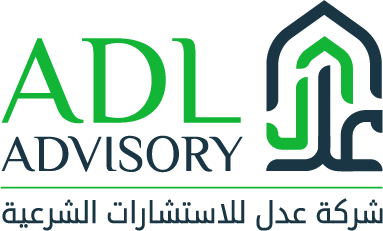
Islamic Wealth Planning and inheritance: “Planning your legacy the Islamic Way”
Life is extremely precious, and delicate. In one moment, you’re here, and in the next you are gone. The same goes for your wealth, one day you are a captain of industry, making significant strides in the economic sphere and the next day, you might be living from hand to mouth.
Allah says in the Qur’an,” No soul knows what it will earn for tomorrow, and no soul knows in what land it will die, surely Allah is All-Knowing, All-Aware.” [Luqman, 31:34]. So ultimately, the knowledge of the future rests only with the Almighty.
So, if it’s true that we are not aware of what tomorrow has in store, and that we can never know what’s in our future then we shouldn’t put in time and effort for our work and wealth right? Well, that’s not completely accurate.
As Muslims we are encouraged by our religion to prepare and plan before trusting in Allah.
In the Quran, when discussing the tale of Yousaf (Peace be upon him), it is mentioned that while in jail, He gave an economic plan which would prepare the society for seven years of drought, followed by another seven years of famine to manage the crisis that they were facing. Although this was through revelation, it does not disprove the fact that it was important for their society’s survival to find a suitable solution.
It is mentioned in the Qur’an : “Yousaf said: ‘For seven years you shall grow crops consecutively. So, what you have harvested, leave it in its ear, except a little which you can eat.” (Surah Yousaf,12:47).
Likewise, we can find evidence of this preparation in the Sunnah of the Prophet (May Peace and Blessings be upon him). In a Hadith narrated by Anas Ibn Malik (May Allah be pleased with him), he says that the Prophet once told a man who asked about his camel to: “Tie her and trust in Allah.” (Tirmizi- 2517) Also, this same planning can be seen at the time of the battle of Badr, when it became a religious duty by the ruling of Allah and his Messenger to prepare and train for battle.
Estate Planning and Wealth
So now that we have understood what our obligation is toward ourselves and the future, it’s important for us to know what are the ways that we can prepare our wealth for preservation and possible tragedy. This brings us to the concept of Estate planning and Inheritance. Estate planning is defined as “the preparation of tasks that manage an individual’s financial situation in the event of their incapacitation or death.” (Investopedia). This concept is not foreign to the Islamic paradigm, as Islam also permits distributing wealth to your loved ones through various mechanisms.
And inheritance is defined as “the set of assets that an individual bequeaths to their loved ones upon their death.” (Investopedia). This is one of the many ways a person can prepare his estate and ensure that his wealth is distributed in a halal and fair way. In Islam, Inheritance is called Faraaid, which means mafrudah – the share that has been determined.
Importance of Inheritance Distribution
Inheritance and its distribution are one of the many injunctions mentioned in the Qur’an and Sunnah. Allah mentions in the Qur’an in chapter 4 “For men there is a share in what the parents and the nearest of kin have left. And for women there is a share what the parents and the nearest of kin have left, be it small or large, a determined share.” (Al-Nisa, Verse 7).
The prophet (May Allah be pleased with him) said in a hadith mentioned in Ibne Majah, narrated by Abu Hurairah, “Learn the knowledge of faraaid and teach it to people. Indeed, it is half of knowledge, and it is knowledge that is forgotten, and it is knowledge that will first be removed from my people.” (Ibn Majah, 2719).
The principles of Maqasid Al-Shariah have also emphasized the importance of inheritance, through the relation to preservation of wealth. Meaning that one of the objectives of the Shariah is to preserve wealth. This can be achieved through Faraaid.
Types Of inheritance Distibution
There are three types used in Inheritance distribution:
-
Faraaid
-
Wasiyah
-
Endowment
Faraaid
This is a mechanism of Inheritance distribution permitted by Allah in the Qur’an. In Surah Nisa, Verse 11, 12 and 176, Allah speaks about the shares of inheritance and the inheritors in detail. Faraaid are shares of the inheritance that are given to only Muslim heirs and can be distributed only after deduction of funeral expenses, Debt and Wasiyah.
Wasiyah
It is a declaration made by an individual on how one third of their wealth will be distributed and to whom it will be given to. This Wasiyah is given to non-heirs of the family or friends who do not have any rights in the Faraaid. This is separate to a will, which is commonly mistaken as the same thing. A will is a document in which the deceased outlines their wishes to how their estate will be distributed. Wasiyah can only come into effect after the death of the person.
Endowment
Endowments in Islam is called waqf. It is defined as, “an Islamic endowment of property to be held in trust and used for a charitable or religious purpose” (Merriam-Webster). The evidence for Waqf can be found from the hadith, narrated by Abu Hurairah, The Prophet (PBUH) said, “When a man dies, his deeds come to an end except for three things: Sadaqah Jariyah (ceaseless charity); a knowledge which is beneficial, or a virtuous descendent who prays for him.” (Muslim, 1631). Once a Waqf is created, it belongs to Allah and cannot be gifted or sold.
Conclusion
For Muslims, wealth and estate planning is not merely about increasing assets, it is an amanah (trust) from Allah, to be used, preserved, and distributed in a manner that aligns with divine guidance. While the future remains uncertain and death is inevitable, Islamic teachings emphasize the importance of planning with wisdom and foresight. Through mechanisms like faraaid, Wasiyah, and waqf, Islam provides a comprehensive framework for estate planning that upholds and protects rights. It is incumbent on all Muslims to prepare and emphasize estate planning for themselves and other members of the community to empower better and fairer wealth distribution.
References
-
Surah Luqman (31:34)
-
Surah Yusuf (12:47)
-
Surah Al-Nisa (4:7)
-
Sahih Muslim (1613)
-
Jami` at-Tirmidhi (2517)
-
Sunan Ibn Majah (2719)
-
Investopedia. “Estate Planning.” https://www.investopedia.com/terms/e/estateplanning.asp
-
Investopedia. “Inheritance.”
-
Merriam-Webster. “Waqf.” https://www.merriam-webster.com/dictionary/waqf
